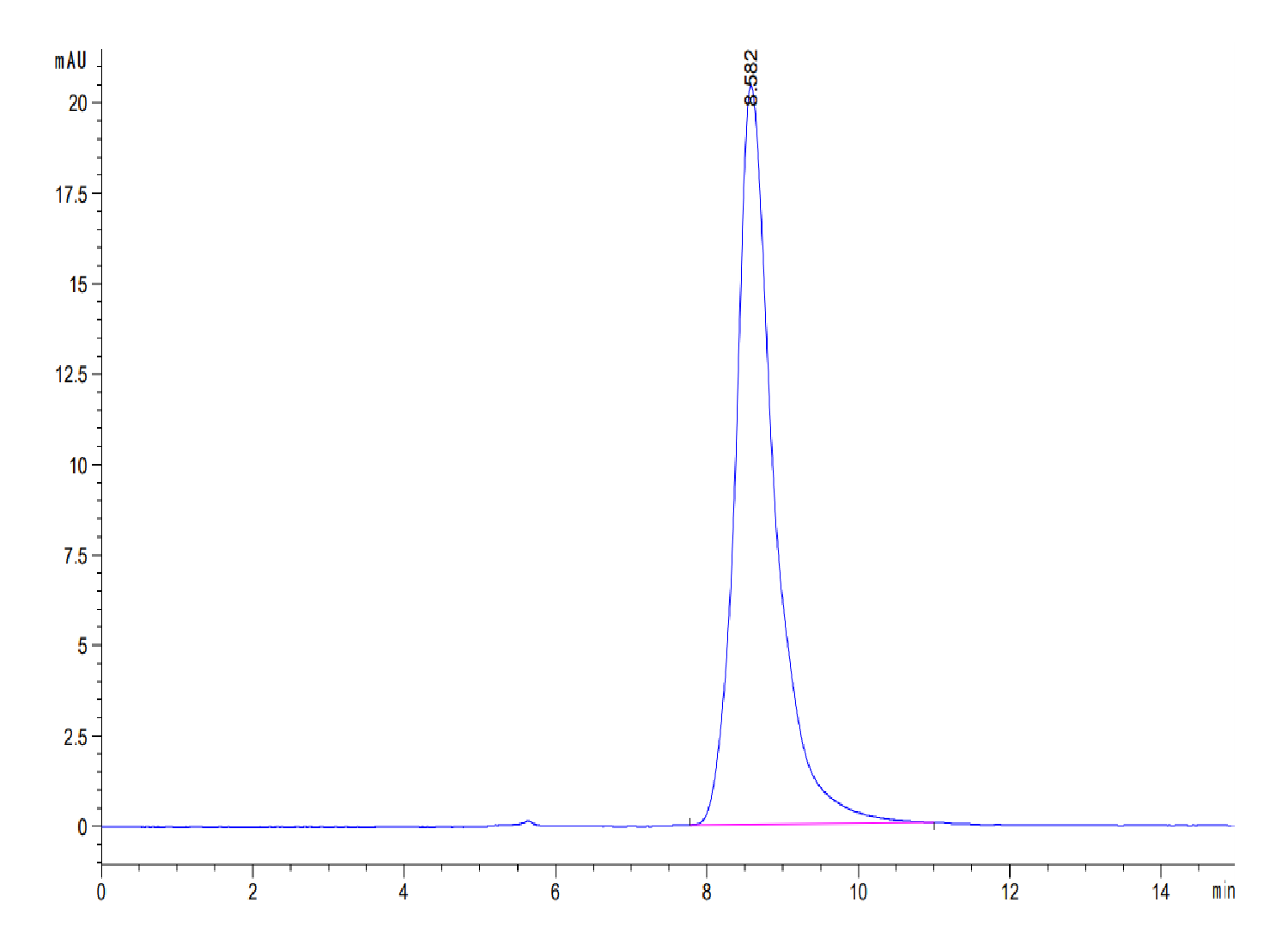|
| Mouse TGF-alpha Protein (LTP10430) |
|
| LTP10430 |
|
| 100ug |
|
|
$406 In stock |
| Transforming growth factor-alpha (TGFA) has been proposed as a candidate gene in the etiology of nonsyndromic cleft lip with or without cleft palate (NS-CL/P) and of nonsyndromic cleft palate only (NS-CPO). Biologic support for a role of TGFA arises from its presence at high levels in the epithelial tissue of the medial edge of the palatal shelves at the time of shelf fusion in mice. |
| Recombinant Mouse TGF-alpha Protein is expressed from Expi293 with hFc tag at the N-terminal. It contains Val39-Ala88. |
|
| TGF-alpha |
|
| Mouse |
|
| P48030 |
|
| Val39-Ala88 |
|
| The protein has a predicted MW of 32.9 kDa. Due to glycosylation, the protein migrates to 38-42 kDa based on the Tris-Bis PAGE result. |
|
| 0 |
|
| N-hFc |
|
| Expi293 |
|
| > 95% as determined by Tris-Bis PAGE; > 95% as determined by HPLC |
|
| Less than 1EU per ug by the LAL method. |
|
| Lyophilized from 0.22 um filtered solution in PBS (pH 7.4). Normally 8% trehalose is added as a protectant before lyophilization. |
|
| Reconstituted protein stable at -80 C for 12 months, 4 C for 1 week. Use a manual defrost freezer and avoid repeated freeze-thaw cycles. |
|
| Shipped at ambient temperature. |
|
| Centrifuge tubes before opening. Reconstituting to a concentration of more than 100 ug/ml is recommended. Dissolve the lyophilized protein in distilled water. |
|
|  |